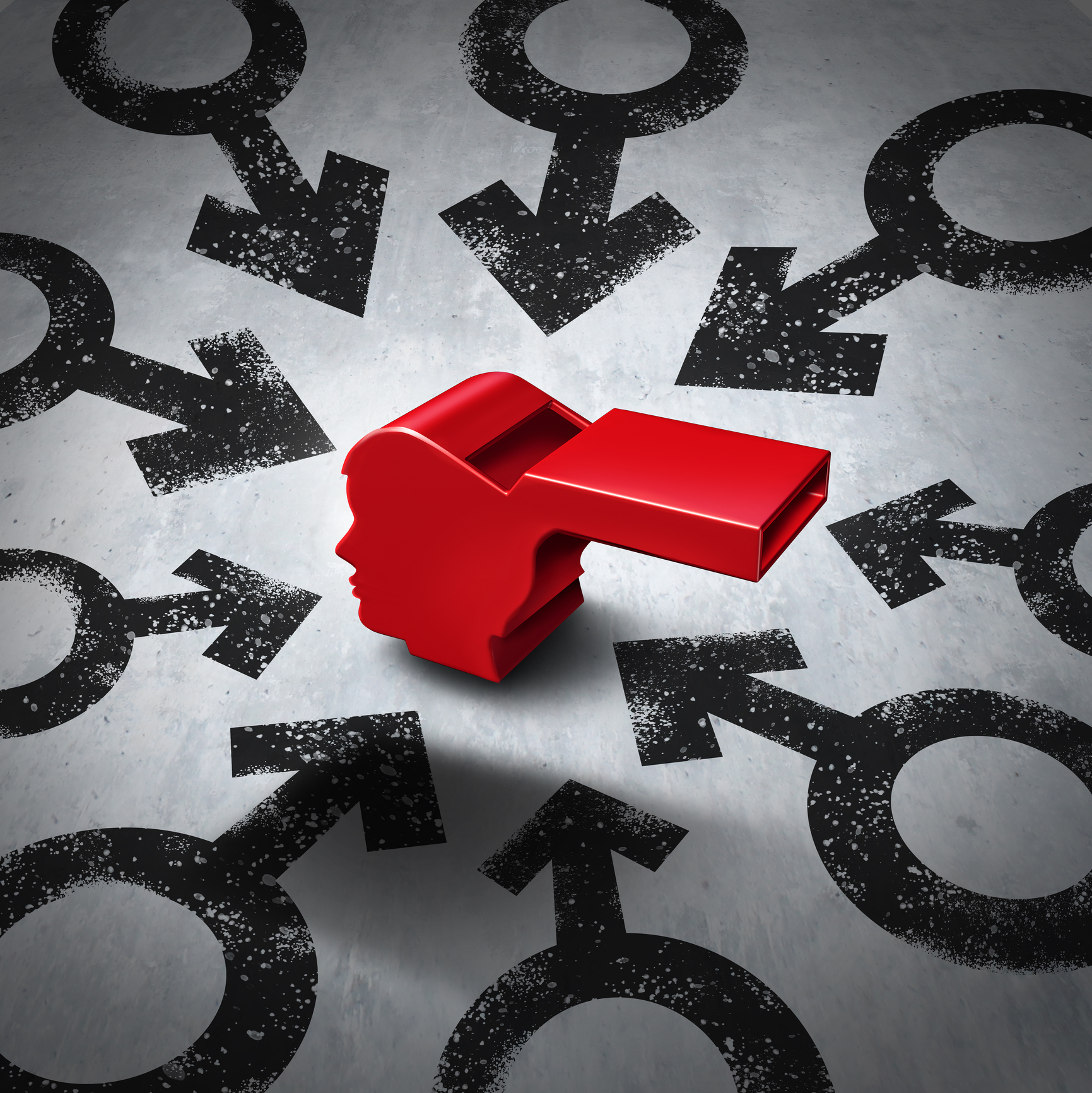That was a statement that got me thinking deeply. For most of us, ‘Patriarchy’ is a hugely obscure subject. Some of us identify it as a philosophy which is bandied about by feminists (folks who themselves are largely misunderstood and misclassified), while others believe that it is usually code for “Let’s blame it all on the men”. As such, the real problems associated with patriarchy are instantly rejected even by the most well-intentioned male, simply because it creates a psychological distance between what it really is and what it is perceived to be. When movements like #MeToo and #TimesUp emerge, the definition of patriarchy is further questioned, often providing a contradictory discourse which does more harm than good.
Let us for a moment stop and understand what patriarchy really is. It appears as a social and ideological construct which allots specific roles to men and women, with the underlying theory that men are superior to women. It has been around for so long that it has infiltrated what we assume is normal behaviour, custom or tradition. Women are not the only victims of patriarchy, men are too. Likewise, some of the strongest propagators of patriarchal biases are not only men, but women too. Many rituals which we harmlessly pass on from generation to generation have the strong odour of patriarchy when examined critically. Its influence has spread clandestinely even into the confines of our home, our conversations, our socialising of children, the media and of course, our workplaces.
Saundarya Rajesh is founder-president of AVTAR Career Creators, FLEXI Careers India, and is the managing-trustee of AVTAR Human Capital Trust
To quote Pritvi, the woman at the pet clinic, it is important to acknowledge the sway of patriarchy. It is equally important to acknowledge that with the advent of movements like #MeToo, the topic of women’s safety has entered the public consciousness with unprecedented intensity. It has created a sense of community among the survivors and shaken up the collective psyche of a society that had hitherto responded with disbelief, disgrace and humiliation to the victims. In short, the #MeToo movement has challenged the patriarchal social norm that only men’s careers and reputation matter. While the society and even the home are still strong bastions of patriarchy, let’s begin by ensuring that the workplace is a turf that belongs to all and where women do matter. And that is a good beginning.
Pugs are the most adorable pets but terribly fussy eaters. Once, my pug decided to go on a hunger strike and I had to take him to the local vet. The other “patient” at the clinic was a beautiful beagle accompanied by a young woman of not more than 20.
Pritvi (that was the young woman’s name) and I got talking and I discovered that she was a smart, well-informed engineer-to-be, the president of her college students’ union, and also a volunteer at a social cause dear to me. We spoke at length about women’s advancement and the #MeToo movement and as we were preparing to leave, I asked her where she lived. She mentioned a colony that was usually deserted at the time of the evening and I replied, a tad worried, “It must be pretty lonely at this time, Pritvi. I don’t mind dropping you. Are you sure you are comfortable going home by yourself?” To which Pritvi said with a smile, “If I decide to be afraid, then I am further reinforcing patriarchy!”
Constructed as it is on the tenet of male superiority, a patriarchal workplace does not see women as central to things. In fact, one of the most blatant evidences of the existence of patriarchy in the workplace is the gender stereotyping of roles assigned to men and women. Women are assigned jobs that are usually considered “ladies’ areas of expertise”, such as front desk executives, secretaries and other peripheral jobs. Most of the strategy-building, decision-making and P&L related roles are handled by men. Opportunities to influence power are not easily passed on to women – even to those who are career-intentional. Women who aspire to return to a career after a break, face the keen edge of patriarchy when they are penalised for a “wrong” life choice. You can recognize the hold of patriarchy when you hear off-colour jokes, sexist remarks and stereotypical pulling down of women. And when the workplace has an ugly underbelly that allows sexual harassment of women, it is evidence of patriarchy’s reversal to the days of the Neanderthal cave man.
In the Handbook of Sexual Harassment of Women at Workplace, (Prevention, Prohibition and Redressal) Act, 2013, issued by the Ministry of Women and Child Development, Government of India, there are broadly, two kinds of sexual harassment. 1) Quid Pro Quo, where the woman is, either directly or indirectly, asked for sexual favours in exchange for some benefit and 2) Hostile Work Environment which includes an intimidating or an offensive work environment. The booklet also defines “Sexual Harassment” as one or more of the following unwelcome acts or behaviour (whether directly or by implication), namely: 1. Physical contact or advances; 2. A demand or request for sexual favours; 3. Making sexually coloured remarks; 4. Showing pornography; 5. Any other unwelcome physical, verbal or non-verbal conduct of a sexual nature.
Yet, in spite of such unequivocal clarification, despite the government mandated POSH (Prevention of Sexual Harassment) and ICC (Internal Complaints Committee), sexual harassment persists, and it took more than 80-odd years since women entered mainstream careers, for the #MeToo movement to erupt, in defiance of the abusers. What can be done in our workplaces to ensure the real safety of women? In my opinion, it boils down to four key aspects.
Powerful affirmation from the Leader – It is paramount for the leader of the organization – the MD, CEO or Country Head – to set the tone at the top to ensure that there is no ambiguity about safety for women. The MD of a Fortune 100 company sent out a personal email to his direct reports and their teams that he was taking personal responsibility for the safety of every employee and he was accessible to receive any issues or suggestions on making their workplace safer for women. When the boss herself takes a stand that the organization will have zero tolerance for any kind of sexual harassment, it results in the culture of safety being set.
The raising of complaints against inappropriate conduct, even minor incidents – When certain charges are trivialised, sexual harassment thrives and continues to persist. A business head of an organization refused to hear a case of sexual harassment in his workplace, going on record to state, “I don’t have time for this BS!” Subsequently, he spent considerable time in the court trying to sort out a criminal case filed against his organization. Even at the cost of erring on the side of caution, it is better to investigate all complaints and ensure astute closure of the same.
Creating a culture of Trust and Respect – Any whistle-blower mechanism like #MeToo erodes trust within the workplace. During a recent recruitment drive, the hiring managers sent out subtle messages that they would prefer not to hire women in their teams for fear of a #MeToo in their workspaces. The benefits of a gender diverse workplace have been proven time and again and if we allow the priority of ensuring safety for women to derail the power of inclusion, that results in a double whammy. It is imperative to put together programs and interventions that recreate trust and respect.
Placing women in influential roles – Originating as it does from the power-mores of patriarchy, sexual harassment is most often a power game. A couple of years ago, a prominent company was notorious for having a toxic workplace in which male abusers in powerful positions got away with harassment. Women’s attrition was high; employee engagement was at an all-time low. Today, this is an organization that wins laurels for being among the most respected, productive and safe workplaces for women. The magical change began when the management brought in a woman leader to head the business. While it is important to hire women in large numbers to create a safety net for all women, it is even more critical to put them in positions of power.













